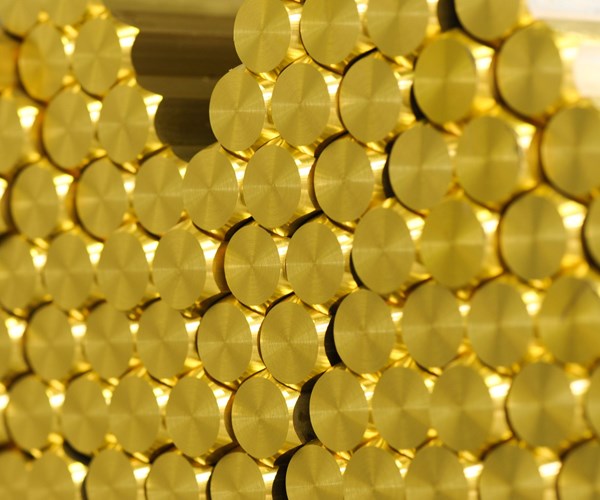Don’t Miss the High-Speed Machining Benefits of Brass
U.S. machine shops may be underutilizing the machinability of brass by as much as 85 percent. See how one study indicates shops can boost brass workpiece material removal rates in milling, drilling and turning operations.

U.S. machine shops are potentially underutilizing the machinability of brass by as much as 85 percent in their part processing operations, reports a recent study from the Copper Development Association Inc. The research shows that machine shops can and should be machining the material at significantly faster feeds and speeds—often five to twenty times faster—than they currently do to increase productivity and profitability.
Today’s brass rod materials, for instance, not only machine easier and faster, they do so without having a negative impact on tool wear, part surface finishes or chip formation. With the power and rigidity of the latest high-speed machine tools, shops have the capability to boost brass workpiece material removal rates in their milling, drilling and turning operations. Also, according to the study, alternative materials such as steel and stainless steel lack the competitive high-speed machining advantages derived from brass.
As a key enabler of current technological advancements in machine tools, brass allows shops to do more high-speed machining for significantly reduced part cycle times. Shorter cycle times, in turn, translate into potentially lower costs per part and more throughput.
In addition to all its machinability benefits, brass is also 100-percent recyclable. The high scrap value of brass allows manufacturers to recoup much of the initial raw material cost through scrap buy-back programs. Machining scrap in the form of chips is then used to produce new brass over and over again with no loss in material properties.









.jpg;maxWidth=300;quality=90)






